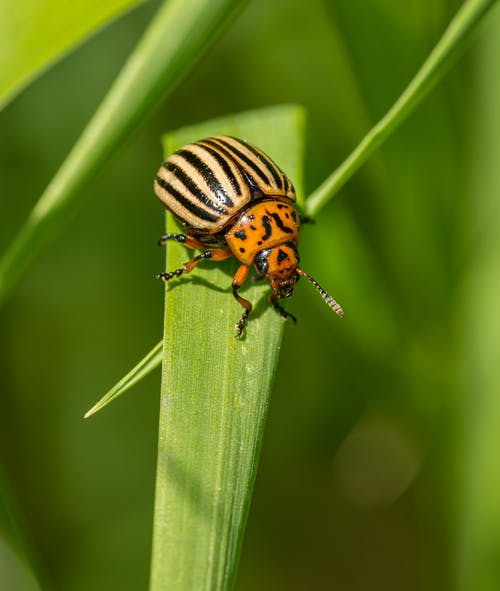Study shows that pesticides are toxic to the soil despite lack of regulation.
A new study published in the journal Frontiers in Environmental Science concluded pesticides commonly used in the U.S. agricultural field pose as a threat to organisms critical to maintain fertile soil, “biodiversity, and soil carbon sequestration to fight climate change.” And yet, these factors have not been considered by regulators who continue to allow their use. The Environmental Protection Agency (EPA), specifically, does not require the soil organisms to be included in risk analysis.
The study was conducted by researchers at the Center for Biological Diversity, Friends of the Earth U.S. and the University of Maryland, and is the most comprehensive review of pesticide damage on soil organisms ever conducted. The researchers collected data from 400 studies, finding that “pesticides harmed beneficial, soil-dwelling invertebrates including earthworms, ants, beetles and ground nesting bees in 71% of cases reviewed.”
“It’s extremely concerning that 71% of cases show pesticides significantly harm soil invertebrates,” said Dr. Tara Cornelisse, an entomologist at the Center and co-author of the study. “Our results add to the evidence that pesticides are contributing to widespread declines of insects, like beneficial predaceous beetles and pollinating solitary bees. These troubling findings add to the urgency of reining in pesticide use.”

Another recent study, published in the journal Science, found pesticide toxicity has “more than doubled for many invertebrates since 2005.” These pesticides are harmful to insects and other invertebrates proven to be benefit for the soil. Soil invertebrates cycle nutrients that plants need to grow. They’re also important for carbon conversion.
“Below the surface of fields covered with monoculture crops of corn and soybeans, pesticides are destroying the very foundations of the web of life,” said Dr. Nathan Donley, another co-author and scientist at the Center. “Study after study indicates the unchecked use of pesticides across hundreds of millions of acres each year is poisoning the organisms critical to maintaining healthy soils. But our regulators have been ignoring the harm to these important ecosystems for decades.”
“Pesticide companies are continually trying to greenwash their products, arguing for the use of pesticides in ‘regenerative’ or ‘climate-smart’ agriculture,” said Dr. Kendra Klein, a co-author who’s also a senior scientist at Friends of the Earth. “This research shatters that notion and demonstrates that pesticide reduction must be a key part of combatting climate change in agriculture.”
“We know that farming practices such as cover cropping and composting build healthy soil ecosystems and reduce the need for pesticides in the first place,” said co-author Dr. Aditi Dubey of the University of Maryland. “However, our farm policies continue to prop up a pesticide-intensive food system. Our results highlight the need for policies that support farmers to adopt ecological farming methods that help biodiversity flourish both in the soil and above ground.”
The review paper analyzed published articles on pesticides on “non-target invertebrates that have egg, larval or immature development in the soil,” encompassing “275 unique species or groups of soil organisms and 284 different pesticide active ingredients or unique mixtures of pesticides.”
Negative effects were found in lab and field work, across all studied pesticides, and in a large number of soil organisms, according to the results.
A similar study by researchers in Australia examining pollution risk across 168 countries found “widespread global pesticide pollution risk,” highlighting another detrimental effect of these pesticides. The findings, published in Nature Geoscience, indicated “64 percent of global agricultural land was at risk of pesticide pollution from more than one active ingredient, and 31 percent is at high risk.”
Sources:
New Study: Agricultural Pesticides Cause Widespread Harm to Soil Health, Threaten Biodiversity
Pesticides and Soil Invertebrates: A Hazard Assessment
A third of global farmland at ‘high’ pesticide pollution risk


Join the conversation!